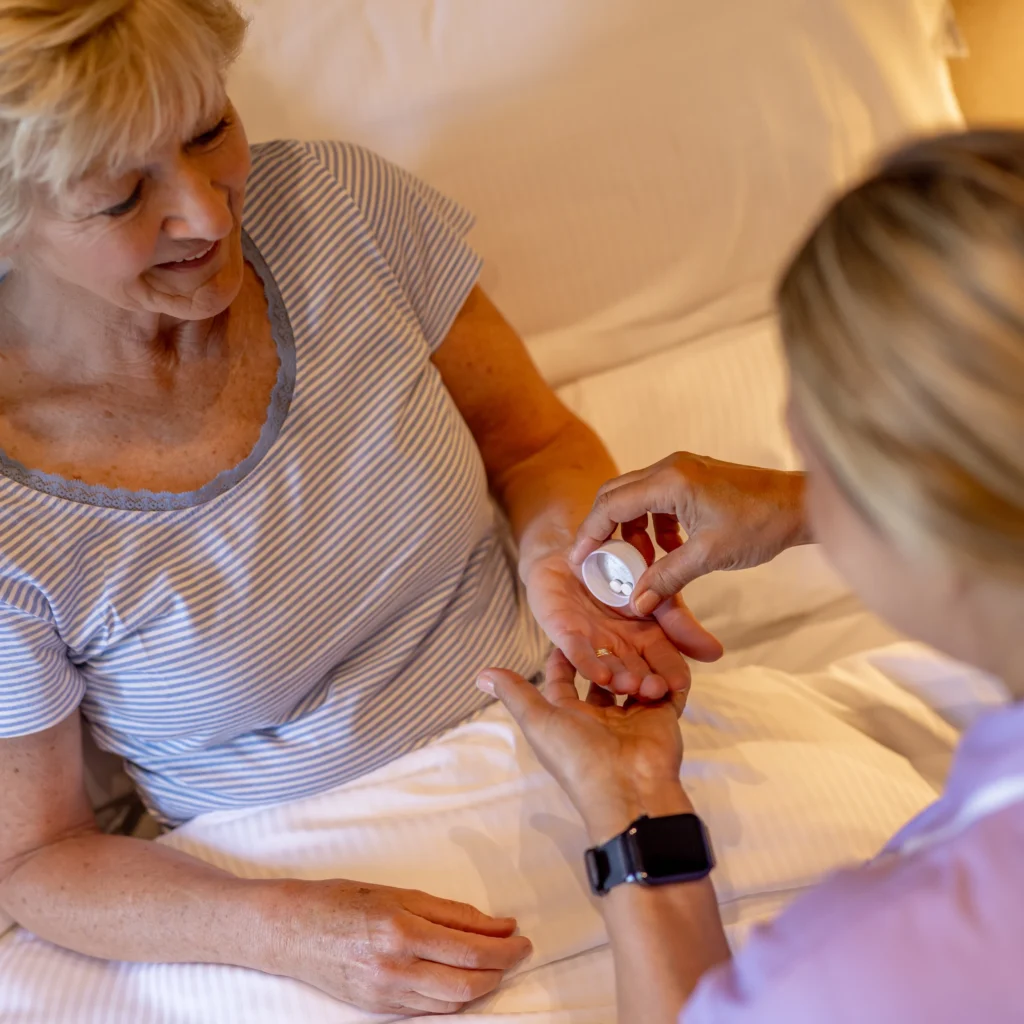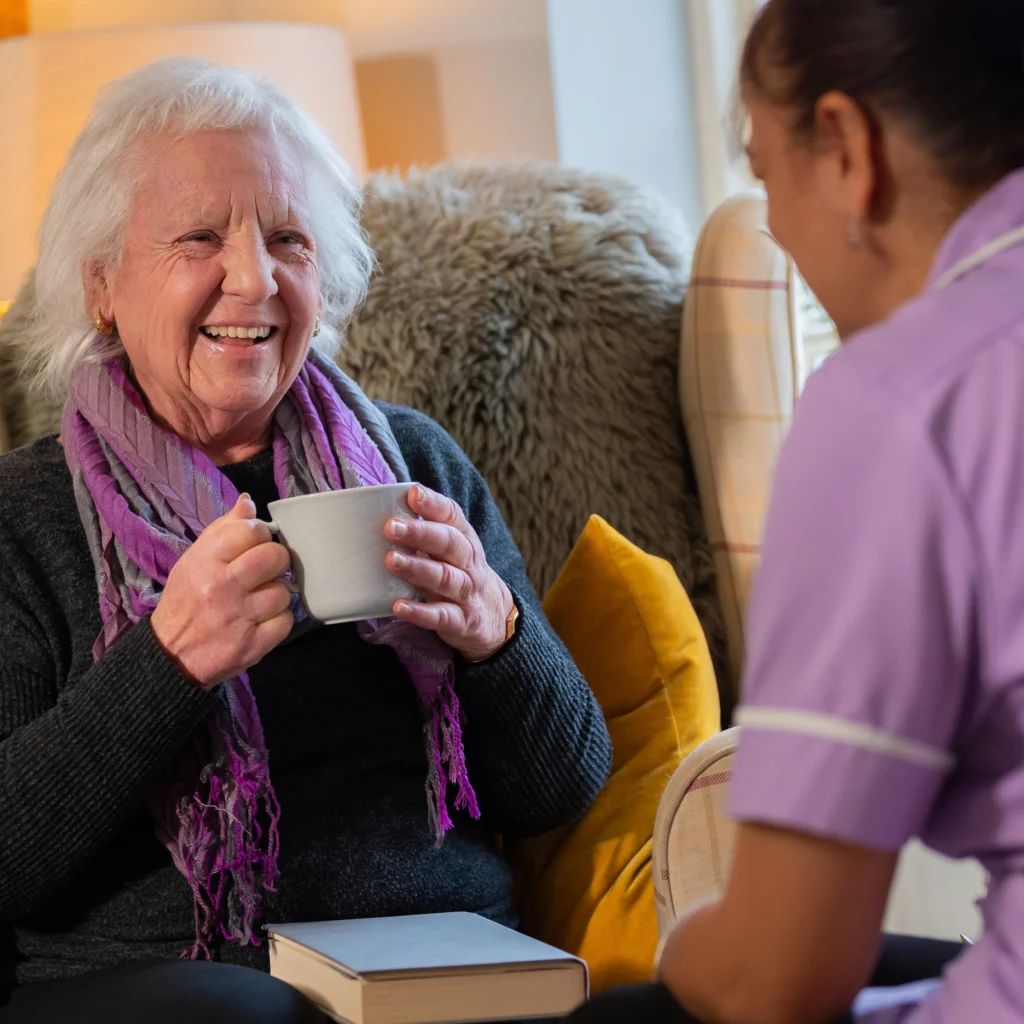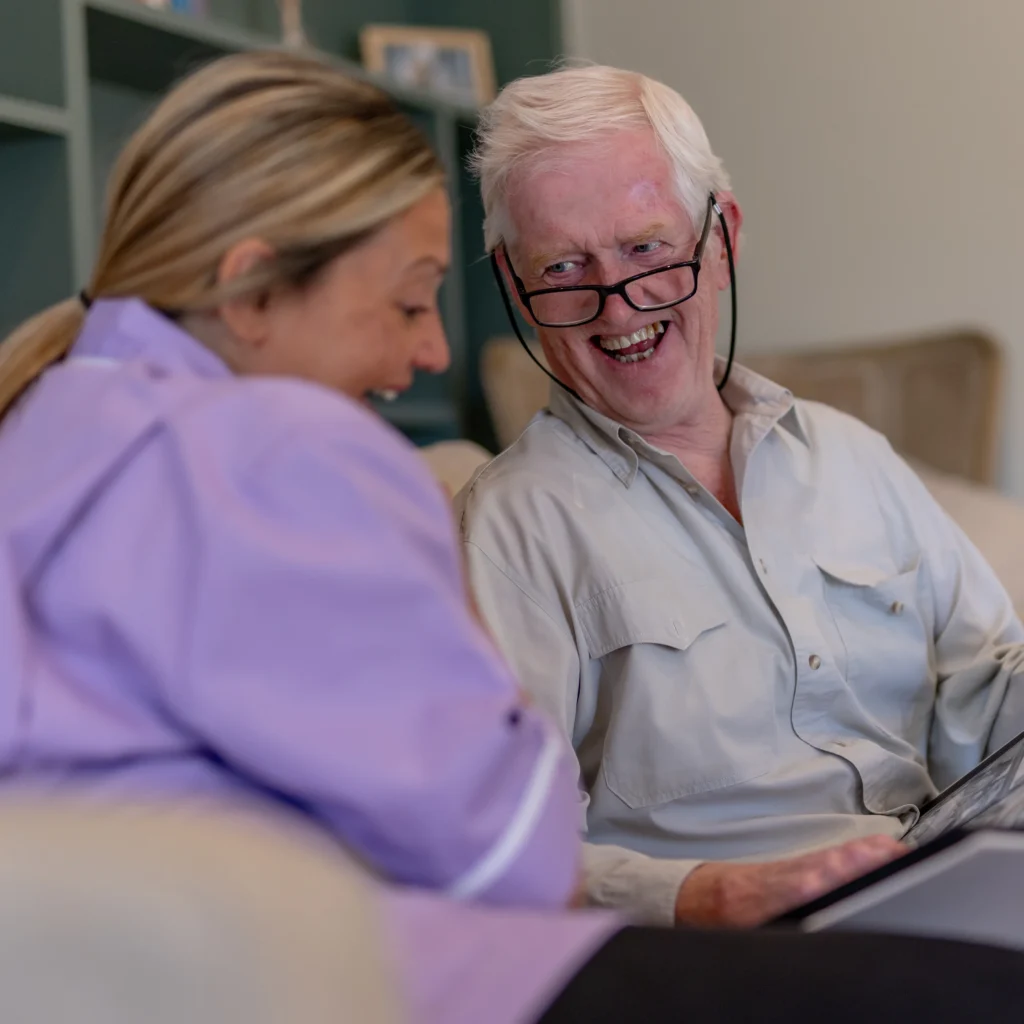What is pneumonia?
Pneumonia is an infection in your lungs caused by bacteria, viruses or fungi.
Pneumonia causes your lung tissue to swell (inflammation) and can cause fluid or pus in your lungs – making it harder to breathe in enough oxygen to reach your bloodstream. It can vary in severity, with the more serious cases resulting in hospitalisation. A bout of pneumonia happens in four stages: congestion, red hepatisation, grey hepatisation, and resolution. The names of each stage refer to how the infection develops over time. The initial congestion stage is characterised by a wet cough, chest pain, and fever. Symptoms usually worsen in the hepatisation stages, and you may have difficulty breathing. The infection typically resolves within one to two weeks.

Why do elderly people get pneumonia?
Elderly people are more susceptible to pneumonia, mostly because they have a weaker immune system.
As we get older, our immune system tends to weaken, which means that the elderly find it more difficult to fight off the types of viral or bacterial infections that may cause pneumonia. Infants younger than age 2 are also at a higher risk.
There are also other reasons why elderly people are more at risk of pneumonia. Firstly, they’re more likely to have an underlying health condition, which in turn makes them more susceptible to pneumonia. They also may have impaired breathing, which can increase the likelihood that they inhale material into their lungs. Additionally, elderly people are the most likely group to be in hospital for a longer period of time, meaning they spend more time in an environment where they may be exposed to pneumonia-causing bacteria or viruses.

What are the symptoms of pneumonia?
The symptoms of pneumonia vary depending on the individual’s age, overall health, and the cause of the pneumonia. Symptoms normally develop over several days, although can develop more quickly. It can often be difficult to differentiate between the symptoms of the flu and pneumonia, but as pneumonia can be life threatening, it’s important to seek medical advice at the earliest opportunity so that you can receive the attention you require.

How to recover from Pneumonia
The recovery period for pneumonia can vary, but typically once you’ve been prescribed a course of antibiotics you should recover in two to four weeks.
However, the recovery process isn’t always straightforward for everyone with pneumonia. You may need to go to hospital for treatment if you are over 65 (or if the patient is a young child), living with a cardiovascular disease or lung condition, or are experiencing severe symptoms which require close attention. In hospital, you’ll normally be put on fluids and antibiotics, and may be given oxygen to assist breathing. You may also be sent for a chest X-ray and undergo blood tests to detect other possible complications.

How Helping Hands can support you with elderly care
Since 1989, Helping Hands have been supporting people with a wide range of care needs in the comfortable, familiar surroundings of their own homes. We offer dedicated elderly care services that are completely tailored to each individual customer’s specific needs and preferences. If you partner with us for help living with pneumonia, we’ll take the time to get to know just how your infection is affecting you so that we can ensure your carers are giving you a type and level of support that is aiding your recovery and helping you to manage your symptoms. Our care can be provided on either a visiting care or live-in care basis, with visits starting from as little as 30 minutes per week, and all of our carers are expertly trained and fully vetted.
Speak to our team
Our friendly, knowledgeable team can answer your questions and talk you through your options. We are available 7 days a week.
Book a free care assessment
Your local Helping Hands care manager will visit you to understand your needs and preferences and discuss how we can help. We can visit you at home, in hospital or even a care home to carry out the care assessment.
Confirm your care package
We create a tailored care plan for you to review. Once you’ve agreed the plan, we can organise care in as little as 24 hours.


